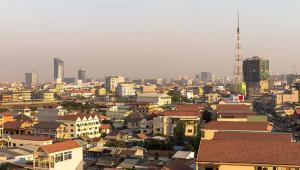By Judith Ugwumadu | 27 May 2014
Economic recovery in southeast Europe is strengthening but significant risks continue to cloud the outlook, the World Bank has said as it increased its growth forecast for this year.
Increasing its expectations, the World Bank said growth across the six countries of the region is predicted to be 1.9% this year, up from the 1.8% it predicted in December. And accelerate to 2.6% in 2015 because of growing external demands for regional exports from high-income countries, particularly those in the European Union.
However, the South East Europe regular economic report published on Monday warned that there were significant risks related to the threat of deflation in the eurozone, which could dampen growth and external demand for exports from the countries of the region – Albania, Bosnia and Herzegovina, Kosovo, Macedonia, Montenegro and Serbia. It also noted rising global interest rates could have an impact on the region’s growth, and there were potential geopolitical ramifications of Russia-Ukraine conflict.
In addition, there were risks related to declining remittances to the region last year, reflecting a sluggish economic recovery and high-levels of unemployment in European Union countries. Also, the impact of recent floods on economic activity in Bosnia and Herzegovina and in Serbia is not known yet, but will likely put further downward pressure on the recovery in these two countries in 2014.
‘The positive growth since mid-2013 and the still accommodative monetary conditions of the Euro Area are likely to continue help SEE 6 exports grow, despite notable risks related to the outlook for the euroarea,’ stated the report.
However, growth-enhancing fiscal consolidation is possible, according to the report. ‘To sustain growth in the region, the countries need to further strengthen their domestic macroeconomic fundamentals and polices that boost productively and resilience to external turmoil,’ stated the report.
It suggests this could be done by reducing the large public sector wage bill and better targeting social transfers benefits to those most in need as well as broadening the tax base; and improving revenue collection.
Kosovo was projected to remain the fastest growing economy in the region and economic growth was projected to accelerate in 2014 to 3.5%. In 2015, Albania, Bosnia and Herzegovina (2%), Kosovo and Serbia (1%) are all projected to have higher or the same growth rates in 2014, the report concluded.












